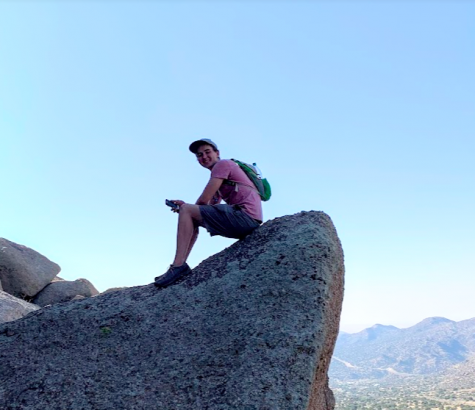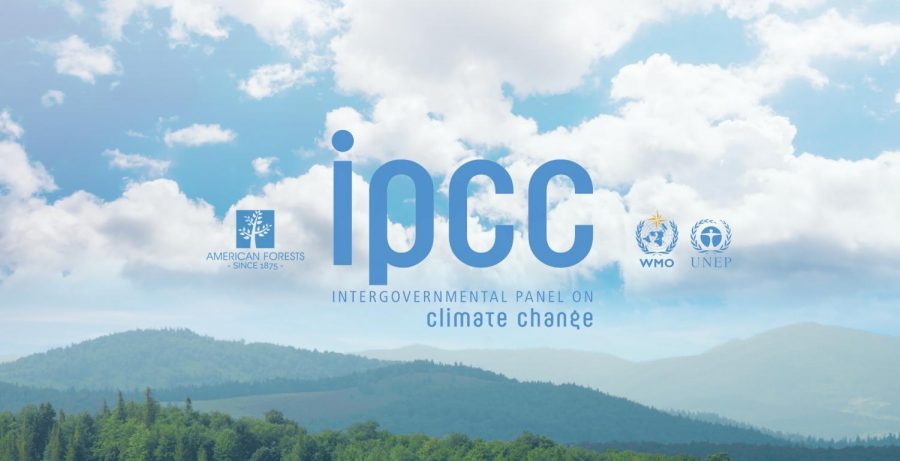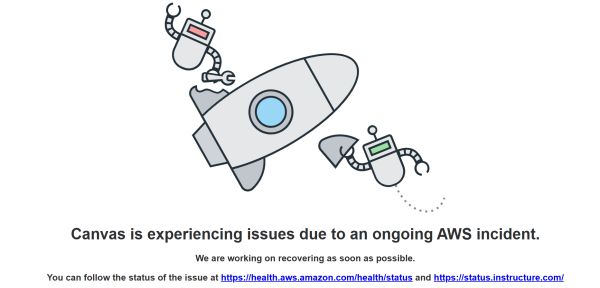Academy Sustainable Practices Fly in the Face of Recent Climate Report
Dire Climate Changes Report Urges Action
The latest Intergovernmental Panel on Climate Change (IPCC) report, released on August 9, 2021, spells almost certain doom for humanity. The report details changes in the climate unprecedented in thousands of years. Written by over 500 contributing authors, citing more than 14,000 other sources, and approved by all 195 member governments.
The report shows that human activities have directly led to 1.1℃ of warming since the industrial revolution. In the next few decades, unless there are immediate reductions in greenhouse gas emissions at a large scale, limiting warming to less than 2℃ since pre-industrial levels will be impossible.
While this may not seem like a large increase, a 2℃ increase would double the worldwide water deficit – a measure of the difference between the amount of water needed in an area for human survival and the amount available. A doubling of this deficit will lead to both a lack of sanitary drinking water, but also a decrease in the production of almost all foods. Grain production in particular will be exceedingly limited, according to NASA. Animal agriculture places an additional burden on this food system, and the Academy, which serves multiple kinds of meat every day, isn’t helping.
Additionally, there will be 0.2 meters of sea-level rise, leading to the displacement of billions of people, salination of drinking water, increased flooding, and increased erosion. Increases in temperature are associated with the spread of vector-borne diseases like malaria as well as the outbreak of viruses like COVID-19. A 2℃ increase over pre-industrial levels would also make many parts of the Middle East and the American West, including high population centers, completely uninhabitable.
While many may assume that climate change will not affect us, the report shows that every region will face increasing changes. IPCC Co-Chair Panmao Zhai said “Climate change is already affecting every region on Earth, in multiple ways. The changes we experience will increase with additional warming.” Global heat extremes would be more frequent and intense, leading to increased crop failures and deaths.
While New Mexico has historically seen droughts, climate change brings both more intense rainfall and more intense droughts. Especially in New Mexico, which relies heavily on the precipitation from the monsoon season, climate change will steeply limit agriculture and increase erosion and water scarcity. Urban areas like Albuquerque will experience even more intense effects, including deadly heat waves and water shortages. While the Academy does collect rainwater and water our fields with reclaimed water, the school is one of the largest consumers of water in the city, and continued use at this level will only exacerbate water shortages.
Despite the bleak outlook this might paint, according to the report, “strong and sustained reductions in emissions … would limit climate change.” These reductions would have to be even more drastic than the policies implemented by the most progressive countries. The proposed target of climate neutrality by 2050 in the Paris Agreement or even the 2030 deadline proposed by some lawmakers is not enough. Anything less than immediate action will lead to cascading effects, displacing billions and killing hundreds of millions.
Albuquerque Academy, notably, is not climate neutral, despite the example set by educational institutions with comparable endowments like Bates College and American University. While the Academy practices some recycling, rainwater harvesting, and gets a quarter of its energy from on-campus solar panels, the data from the recent IPCC report shows that this is simply not enough. The Academy should start by upping its solar contract to cover all the energy demands of the school, curbing its water use, lowering the amount of meat served, reinstituting its composting system, switching the maintenance equipment to electric, as well as implementing smaller changes like replacing light bulbs. As individuals, we cannot easily make a large impact, but as an institution, the Academy can set the bar for sustainability. If we as a state, city, community, and school wish to create a livable future, the panel indicates that we must quickly change our ways.

Quinn Ennis ‘22 occasionally wrote for the Advocate from 6th grade through 10th grade but began to approach journalism more seriously during the pandemic...







